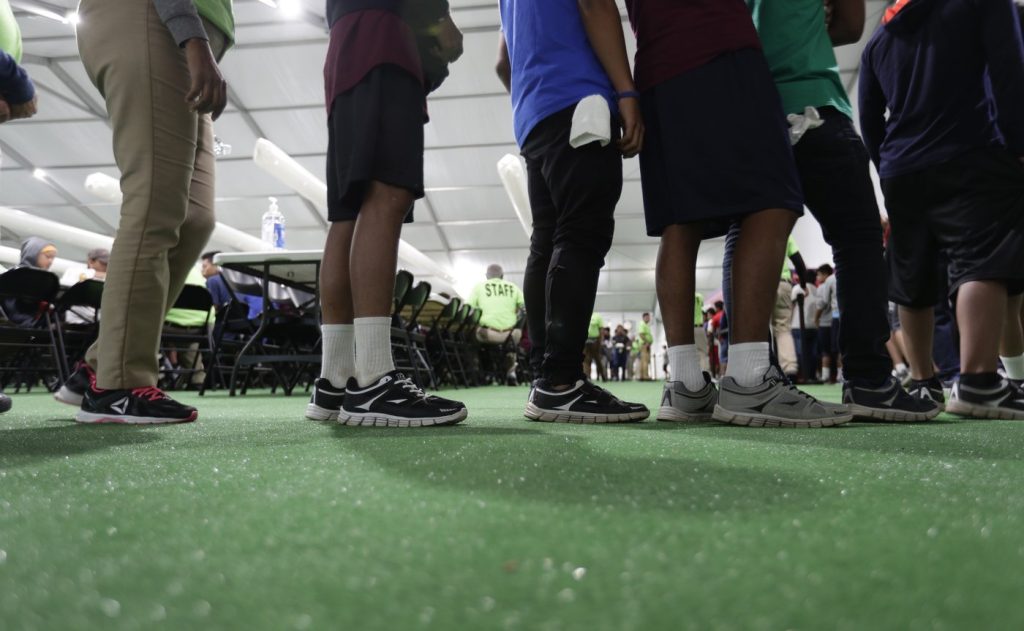A federal judge in California has ordered the Trump administration to temporarily restore legal aid for tens of thousands of unaccompanied migrant children currently residing in the United States. This decision comes in response to the termination of a contract with the Acacia Center for Justice, which was providing essential legal services for children under 18 through a network of subcontracted legal aid groups.
The contract termination occurred on March 21, raising concerns that approximately 26,000 children would lose access to their attorneys. Eleven subcontractor groups filed a lawsuit arguing that the government has a responsibility under the 2008 Trafficking Victims Protection Reauthorization Act to ensure vulnerable children receive legal counsel. The Acacia Center itself is not a plaintiff in this case.
U.S. District Judge Araceli Martínez-Olguín issued a temporary restraining order that will take effect on Wednesday and remain in place until April 16. In her ruling, Judge Martínez-Olguín acknowledged that the advocates raised valid concerns regarding the potential violation of the 2008 law by the administration. She emphasized that ensuring continued funding for legal representation contributes to the efficiency and fairness of the immigration system.
This ruling marks the third legal setback for the Trump administration’s immigration policies in less than a week. Previously, a federal judge in Boston ruled that individuals with final deportation orders must have a "meaningful opportunity" to contest their deportation to third countries. Additionally, another federal judge in San Francisco halted plans that would have ended protections for hundreds of thousands of Venezuelans whose legal status was set to expire on April 7.
The 2008 Trafficking Victims Protection Reauthorization Act designed specific protections for migrant children who may struggle to navigate the complex immigration process alone. Lawyers representing the children highlighted that some are too young to articulate their needs, while others are too traumatized and lack proficiency in English.
According to the law, the government must ensure “to the greatest extent practicable” that all unaccompanied children have legal representation during proceedings, protecting them from mistreatment and exploitation. In defending their position, the defendants, which include the Department of Health and Human Services and its Office of Refugee Resettlement, have argued that taxpayers are not obligated to fund direct legal aid for migrant children, especially amid efforts to reduce government spending. They also claimed that district courts lack jurisdiction over the contract termination that was scheduled to end in March.
While Acacia Center currently operates under a new contract focused on providing legal orientations, including “know your rights” clinics, the plaintiffs clarified that they are not seeking the restoration of the previous contract. Instead, they are advocating for a return to the previous funding mechanism that allocated $5 billion, specifically appropriated by Congress for the legal representation of these children. Karen Tumlin from the Justice Action Center emphasized that the administration has a duty to outline a clear plan for assisting these vulnerable children.
Jonathan Ross from the U.S. Department of Justice insisted that the government continues to fund legally mandated activities, such as the “know your rights” clinics, and maintained that legal clinics have the option to provide their services voluntarily without charge.
It is noteworthy that Judge Martínez-Olguín, who issued the recent ruling, is a Biden appointee, indicating a contrasting approach to immigration issues compared to the previous administration.










